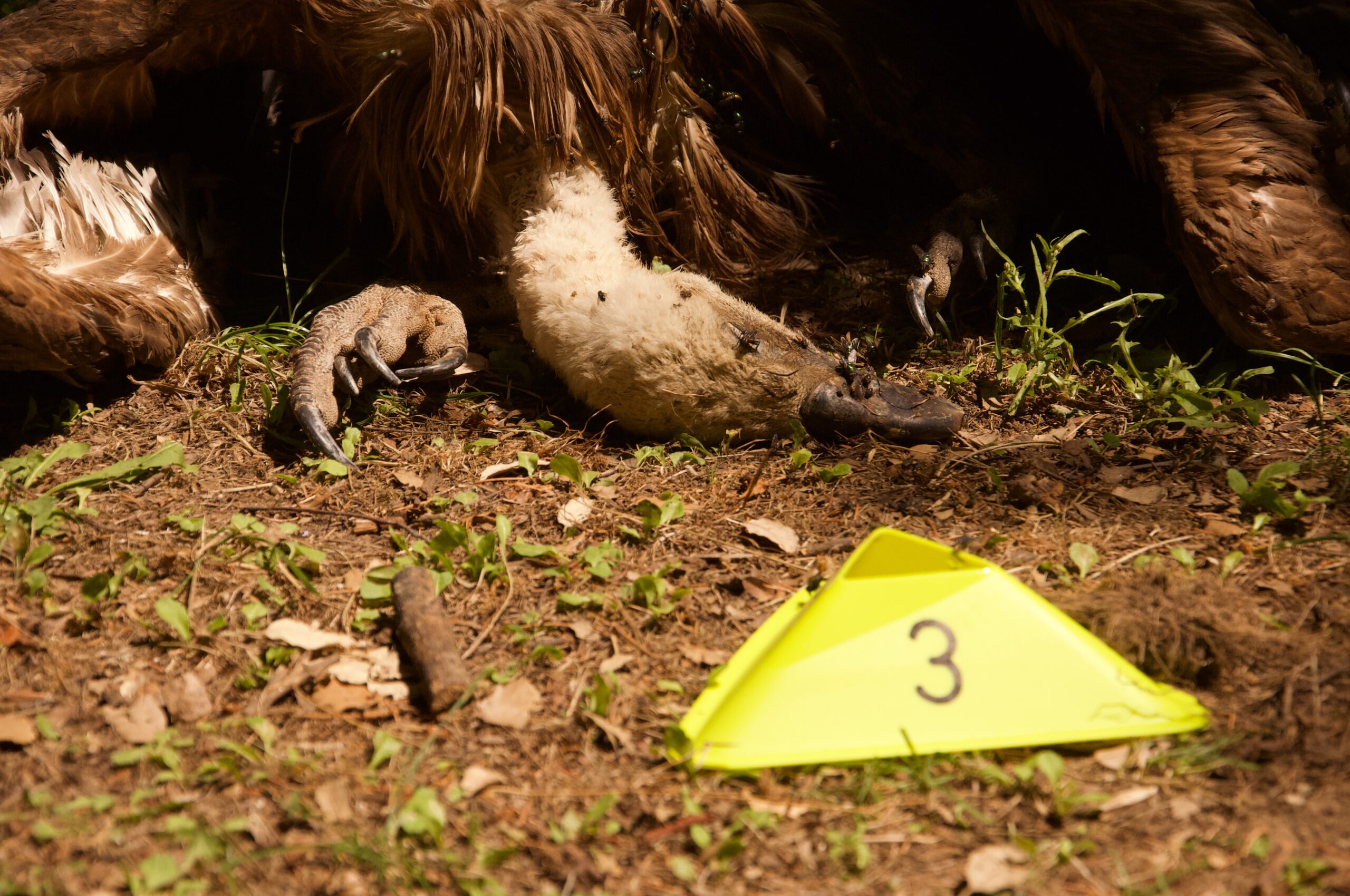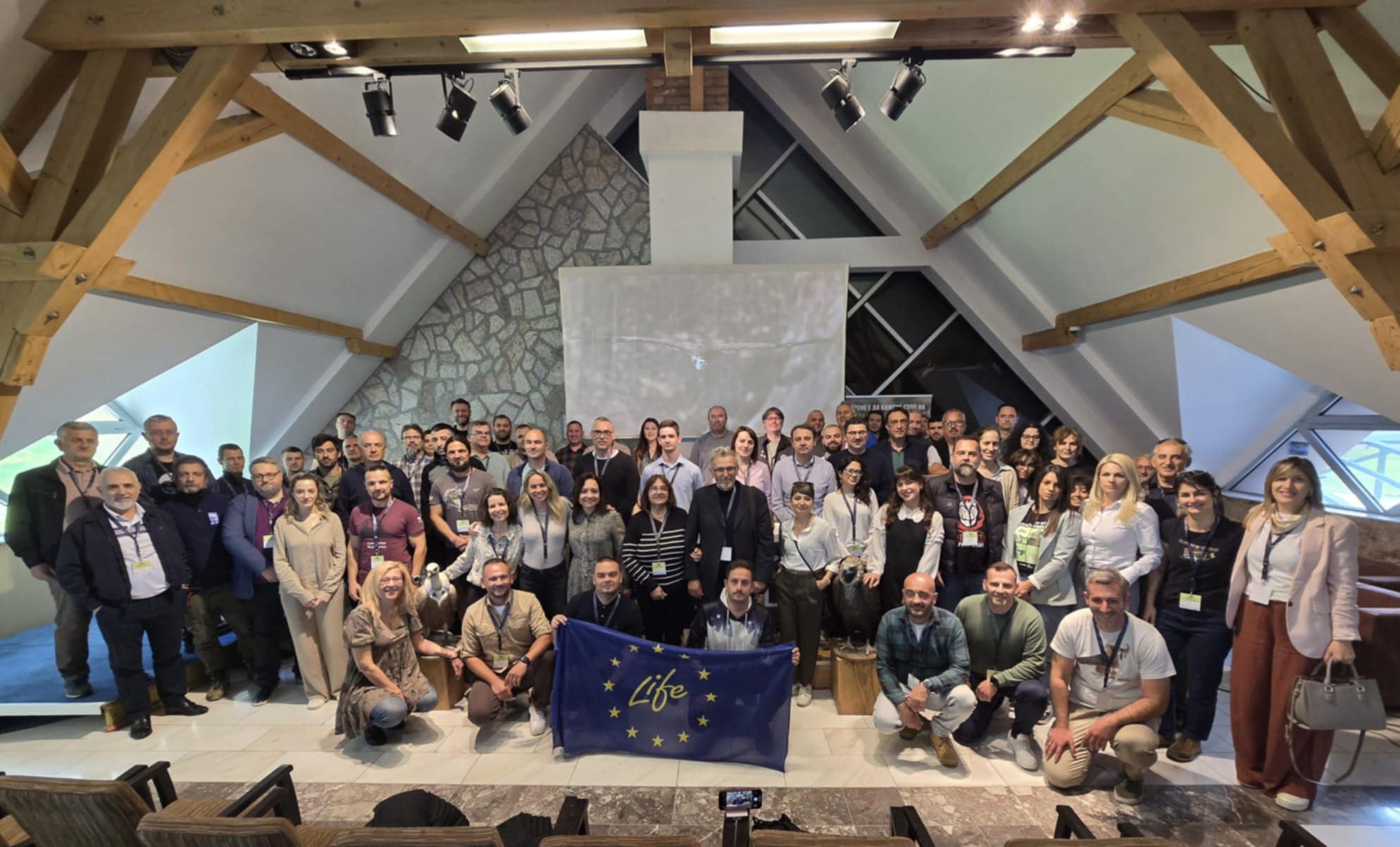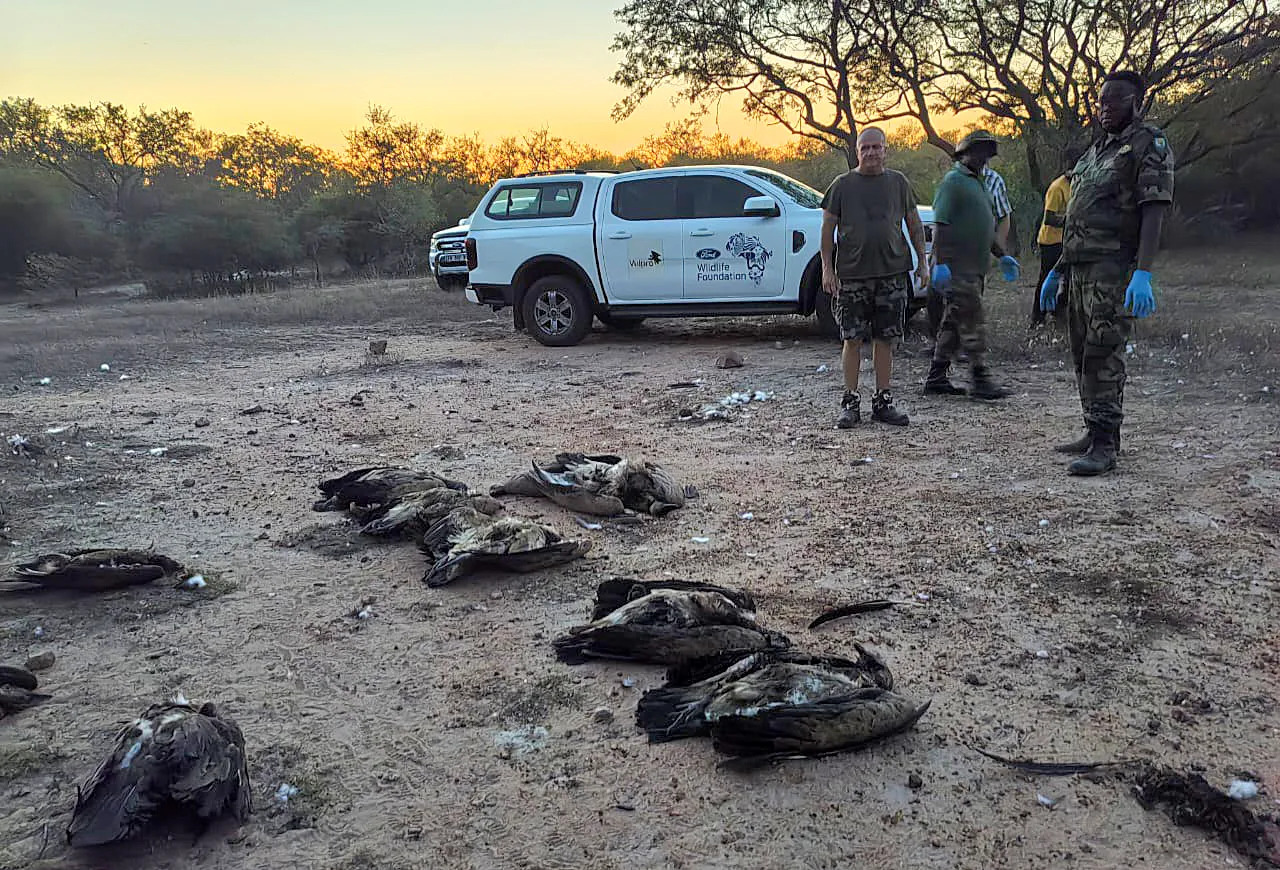The marketing of veterinary medicine diclofenac – an anti-inflammatory drug – for livestock use is awaiting authorisation from the Portuguese Government and, if approved, could put endangered vultures in Portugal at risk.
The Portuguese Parliament will discuss, on Thursday 10 October two proposals for draft legislation, submitted by the Green Party (Partido Os Verdes) (Bill No. 885/XIII/3) and the PAN – People, Animals and Nature Party (Bill No. 1056/XIII/4), to prohibit the marketing and use in Portugal of veterinary drugs that use diclofenac in its formulation. This substance is extremely toxic to vultures if these birds consume carcasses treated with this veterinary drug, and it was responsible for the dramatic and abrupt decline of vultures in the Indian sub-continent, which almost led to their extinction. The Directorate-General for Food and Veterinary Affairs (DGAV) is currently evaluating a request for a marketing authorisation for a veterinary medicinal product for livestock use containing the active substance diclofenac. The drug is currently in use in Italy and Spain in Europe, but banned in other countries like France.
A deadly drug for vultures
Diclofenac causes acute renal failure in vultures of the genus Gyps such as the Griffon Vulture and also probably in eagles of the genus Aquila, which culminates in their death in a short time. In India, it was shown that it was enough for less than 1 percent of the carcasses available to vultures to be treated with diclofenac, to reduce the populations of three species of vultures by more than 97%, which led to this drug being banned in the Indian subcontinent.
Vultures in Portugal

Portugal has important populations of Cinereous, Egyptian and Griffon Vultures and are all protected by national legislation. Conservation work and investment done by NGOs and the national government have seen vulture populations increase. Griffon vultures now number about 1000 pairs, while the Cinereous Vulture, which went extinct in the 1970s, has recently recolonised the country since 2010 with 25+ breeding pairs now found in the country. Whilst our LIFE Rupis project is working to protect and support one of the largest populations (135 pairs) of Egyptian Vultures in Europe in the Douro Canyon.
A very real threat to the vultures of Portugal
We here at the Vulture Conservation Foundation have been alerting the European and national authorities since 2014 about the possible impacts of this medicine on vultures, having appealed to the Portuguese Government not to authorise the use of this substance.
Given the potential impacts of diclofenac on these species, their eating habits and small populations, the authorisation and use of diclofenac in Portugal will have a potentially devastating impact on these birds and also on the ecosystems where they occur, as a result of their important ecological role.
The Institute for Nature Conservation and Forests (ICNF), a partner in several projects for the conservation of vultures in Portugal, has already acknowledged its concern about the potential use of diclofenac in livestock farming, as well as the risks that this entails for the conservation of national populations of vultures. The concern of all Portuguese conservation organisations involved in the conservation of these species is evident – all are requesting a ban of veterinary dicliofenac.
There are readily available alternatives to veterinary diclofenac in the market, that are not toxic to vultures, and cost the same amount.
Stop the authorisation of diclofenac
We believe that the authorisation of diclofenac in Portugal for livestock use could also irremediably jeopardise the national commitment and efforts to conserve vultures, thereby putting at risk Portugal’s reputation and commitment to nature conservation and environmental sustainability objectives at national and EU level.
In 2014 Portugal voted in favour of the adoption of a resolution (Resolution 11.15 of the COP11 of the CMS) that includes the legislative recommendation to ‘prohibit the use of diclofenac veterinary for livestock treatment and replace it with safe and already available alternatives, such as meloxicam’ at the Conference of the Parties of the Convention on the Conservation of Migratory Species of Wild Animals (CMS or Bonn Convention). This was followed in 2016 when the International Union for the Conservation of Nature (IUCN) also adopted a motion at the World Conservation Congress calling on governments to urgently implement the prohibition of diclofenac’s use.
We along with other NGOs hope that the use of the best existing scientific knowledge, and respect for the precautionary principle, will lead to the request for marketing in evaluation not being approved and that, definitively, the marketing and use of these veterinary medicines will be prohibited in the country, avoiding the consummation of a real, imminent and critical risk.
![]() Press Release (Portuguese) Press release (final).pdf Adobe Acrobat Document 291.7 KB Download
Press Release (Portuguese) Press release (final).pdf Adobe Acrobat Document 291.7 KB Download




